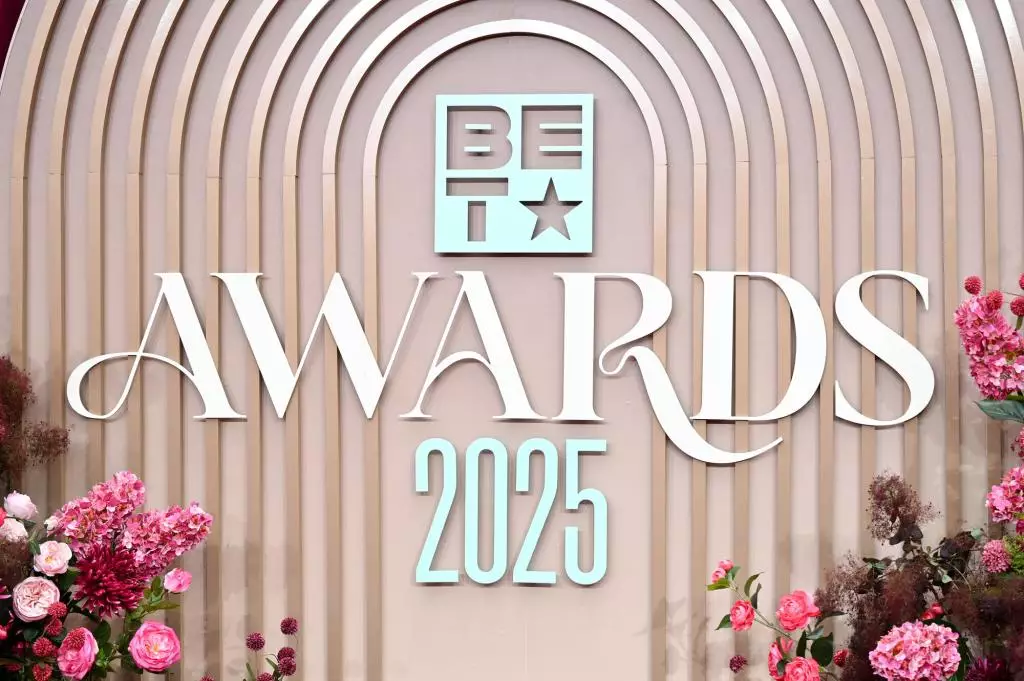As the curtains lifted on the 2025 BET Awards in downtown Los Angeles, the atmosphere mingled with excitement and apprehension. This milestone event, marking a quarter-century of acknowledging and celebrating Black excellence across music, film, TV, and sports, was particularly poignant. Hosted by the ever-charismatic Kevin Hart, the Peacock Theater became a canvas for the rich tapestry of Black culture—yet, behind the glimmering facade, unrest simmered. Protests against ICE raids cast a shadow on the festivity, a reminder that societal issues persist even in spaces meant for celebration.
The juxtaposition of this glamorous night against the backdrop of real-world struggles is a striking metaphor for the Black experience in America. It poses critical questions about visibility and voice—who gets acknowledged in mainstream culture, and at what cost? The BET Awards have always served as both a celebration and a platform for discourse. As we clapped and cheered for big names and emerging talents alike, the murmurs of dissent resonated through the air.
Kendrick Lamar: A Symbol of Artistic Excellence and Social Consciousness
This year, Kendrick Lamar arrived with an impressive ten nominations—making him a significant figure to watch. His recognition in categories like Album of the Year and Best Male Hip Hop Artist reflects more than individual accolades; it showcases his evolution as an artist who uses his platform to challenge societal norms and provoke thought on the state of race relations. When airing Kendrick Lamar’s performance, one can’t help but appreciate that his artistry transcends mere entertainment. Instead, his work becomes a vehicle for delivering poignant commentary on the African American experience, addressing injustices, and rallying support for change.
Lamar’s influential presence at the BET Awards exemplifies a shift in how Black artists navigate their platforms. While many may opt to stay within the safe confines of entertainment, Kendrick pushes the envelope. It is this dichotomy that highlights the BET Awards not just as a night of glitz but as a venue that demands artists assume responsibility for the narratives they shape within their communities.
Doechii and the Power of Protest
At the forefront of the evening’s narrative was Doechii, who, upon receiving the award for Best Female Hip Hop Artist, delivered a fiery speech calling out President Donald Trump’s administration for what she termed “ruthless attacks” against marginalized communities. Herein lies a crucial moment: within the glitz of the awards, Doechii steps up, reminding everyone of the stakes involved in Black artistry. Her call to action resonates deeply now, with the political climate more polarized than ever. Artists like her are not merely entertainers; they are torchbearers for their communities, navigating the intersection of art and activism.
Moreover, her moment on stage signifies the growing recognition that modern artists have a role to play in political discourse. Each time a talented figure like Doechii speaks out, it’s a small victory for visibility and empowerment—an assertion that the arts can no longer be a retreat from injustices but must serve as their critique.
A Diverse and Dynamic Celebration
With a stellar lineup of performances from GloRilla, Teyana Taylor, and Lil Wayne among others, the BET Awards ensured that diversity was at the forefront of the evening’s offerings. The audience was treated to a visual feast, showcasing a range of musical styles and artistic expression. This dynamic representation not only cements the significance of the awards but also challenges the industry to expand its notion of what success looks like. No longer confined to conventionally recognized figures, the stage became a celebration of diverse voices yearning for acknowledgment.
The audience included a constellation of stars—from Keke Palmer to Tyler Perry—illustrating the breadth of talent in the room. But amidst the cheers, there lingered a question: how much space do we give to emerging talents? The balance between honoring established icons and nurturing new voices is vital for the longevity of any award ceremony. It’s a reflection of the broader entertainment landscape, where innovation must grapple with tradition in a rapidly evolving cultural milieu.
The evening, intricately woven with themes of social justice, artistic recognition, and cultural celebration, serves as a powerful reminder that the Black narrative is multifaceted. In an age where political tensions loom large, moments like the BET Awards provide more than mere entertainment; they spark dialogues that bear significance far beyond the stage.

Leave a Reply